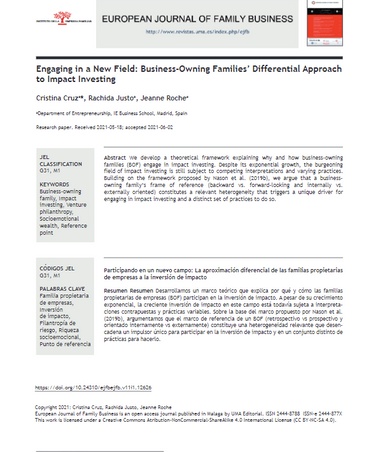- Home
- Research
- Academic Research
- Engaging In A New Field: Business-owning Families’ Differential Approach To Impact Investing
Engaging in a New Field: Business-Owning Families’ Differential Approach to Impact Investing
Engaging in a New Field: Business-Owning Families’ Differential Approach to Impact Investing

Date
17/06/2021
Author(s)
Cristina Cruz, Rachida Justo, y Jeanne Roche
Organization
European Journal of Family Business 11 (1)
Publication
Publication Type
Academic Research
This article develops a theoretical framework that explains why and how business-owning families engage in impact investing.
Despite its exponential growth, the burgeoning field of impact reversal is still subject to divergent interpretations and practices. Based on the framework proposed by Nason et al. (2019b), the article argues that a frame of reference for business-owning families (backward vs. forward and inward vs. outward oriented) is a relevant heterogeneity that triggers a unique engine for engaging in impact investing and a distinct set of practices for doing so.